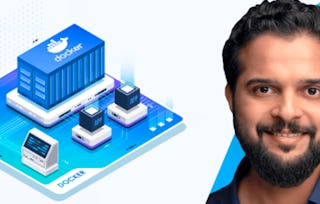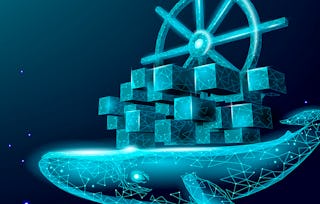Docker is an open platform for developers and sysadmins to build, ship, and run distributed applications, whether on laptops, data center VMs, or the cloud.
This course introduces Docker to an Absolute Beginner using really simple and easy-to-understand lectures. Lectures are followed by demos showing how to set up and get started with Docker. The coding exercises that accompany this course will help you practice Docker commands, develop your own images using Dockerfiles, and practice Docker Compose. You will be developing Docker files for different use cases right in your browser. This way, you don’t really need to have your own environment set up to get some hands-on practice. The coding exercises will validate your commands and Dockerfiles and ensure you have written them correctly. And finally, we have assignments to put your skills to the test. You will be given the challenge to solve using the skills you gained during this course. This is a great way to gain real-life project experience and work with the other students in the community to develop a Dockerfile and get feedback for your work. The assignment will push you to research and develop your own Docker images. Docker Course Requirements 1. Basic System Administrator Skills 2. Good to have (Not Mandatory) access to a Linux System to setup Docker to follow along















